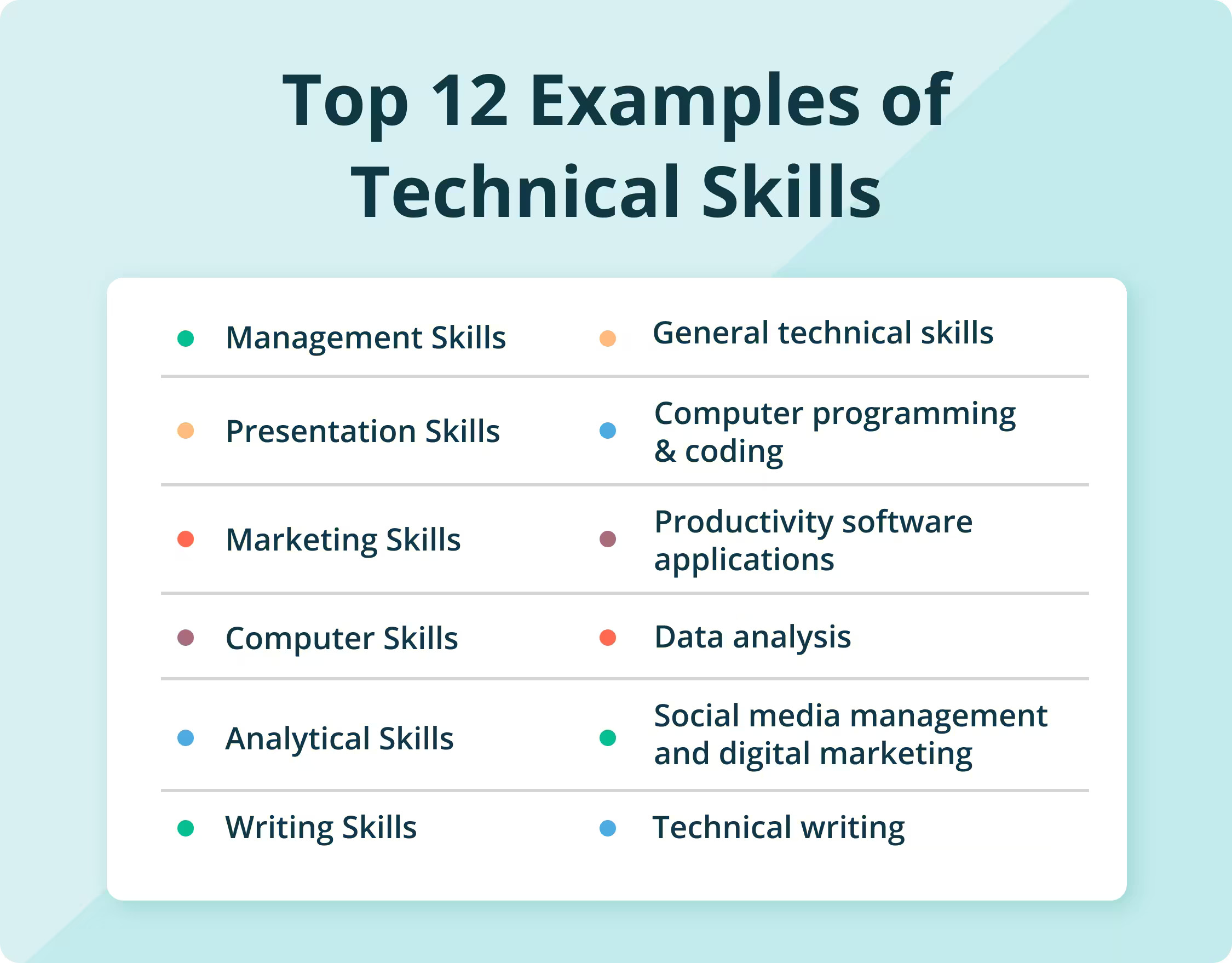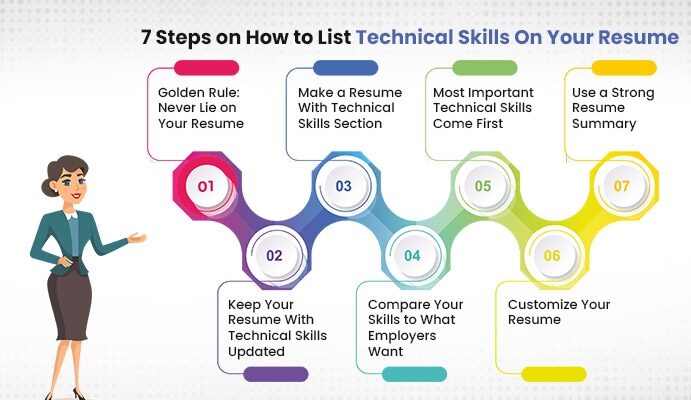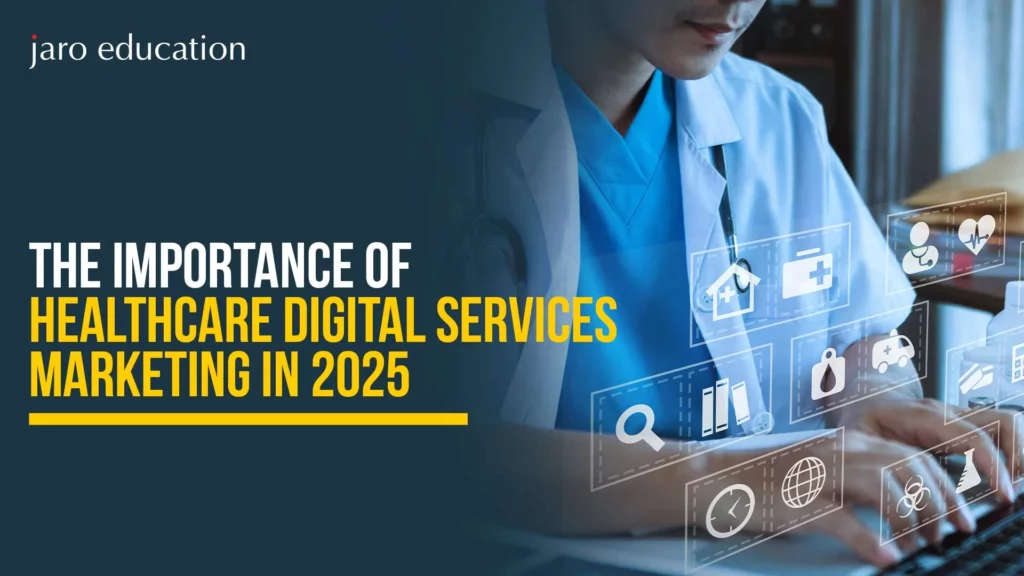What Are Technical Skills? Examples & Types Explained
Table of Contents

In the ever-changing job market, skills are currency, and technical skills are the most valuable bills in your resume. Whether you are a new graduate searching for your first job or an experienced professional looking to climb the ranks, having the right technical skills behind your name matters. Employers do not care whether you are hard working or a team player; they want evidence that you can actually carry out the requirements of the job, and this is where your technical skills come in.
In this blog, we will define what are relevant technical skills and types of technical skills for your resume.
What Are Technical Skills?
When people hear the term technical skills, they think about coding, information technology background, or complex machinery. While that is true, the concept is much broader than that.
Technical skills are more specific specialties that you develop through education, training, or practice. Technical skills are different from soft skills, which include communication or collaboration skills, in that they can be assessed and measured. Either you know how to write a line of code, operate heavy machines, or analyse data, or you do not. It’s like, if having good soft skills makes you a good colleague, then having good technical skills makes you employable.
To simply put, technical skills show your professional capacity to do a job and show that you are ready to take on the expectations of that role. Some quick examples of technical skills include, data analysis, cloud computing, social media analytics, accounting software, and project management software, all of which employers are hiring for today.
Top 9 Technical Skills Examples

*jobhero.com
1. Artificial Intelligence (AI)
AI is not just a trendy term, it’s a large portion of many technologies across all industries. In reality, Artificial Intelligence is focused on the development of machines or systems that mimic human intelligence. For example, self-driving cars making instantaneous decisions, hospitals utilising AI for faster diagnostic procedures, or retail e-commerce websites anticipating your next purchases.
- Core Tools & Frameworks: TensorFlow, PyTorch, Keras.
- Industries Utilising AI: Healthcare, automotive, retail, and finance.
- Why It Is in Demand: Businesses want AI specialists to help them study large sets of data to make better decisions. AI as a skill makes you infinitely more employable.
2. Machine Learning (ML)
Machine Learning is a subset of AI that instructs systems to learn from data over time and improve, rather than writing code to perform a specified task. If you’ve ever wondered how Netflix recommends shows, or how banks identify fraud while it is occurring, ML is the answer. This technical skills for resume can be a game changer for your career in given below ways:
- Key applications of ML: Fraud detection; customer personalization; predictive analytics.
- Languages, libraries, and tools for ML: Python, R, and scikit-learn.
- Career worth of ML: ML is in high demand for these roles: data scientists, business analysts, and AI engineers.
3. Deep Learning
Deep Learning is another important technical skills for resume that is built on top of ML. With Deep Learning, artificial neural networks, modeled after human brains, are used for processing, analyzing, and understanding of complex and unstructured data, like images/videos/voice. This is the technology that powers things like voice assistants such as Alexa, facial recognition software, and real-time translation mobile apps.
- What Makes It Unique: It can detect patterns in massive amounts of data that the human brain cannot.
- Tools to Learn: TensorFlow, Theano, PyTorch.
- Future Possibilities: Deep Learning professionals will be highly sought after in the future as autonomous vehicles and smart robotics become more sophisticated.
4. Natural Language Processing (NLP)
NLP is a field of artificial intelligence dedicated to enabling computers to understand, interpret, and produce human language. If you have chatted with a customer support chatbot, used Google Translate, or asked Siri for directions, you are familiar with the use of NLP.
- Key Uses: Sentiment analysis, speech recognition, spam detection.
- Common Tools: NLTK, SpaCy, GPT-based tools.
- Why Employers Want It: Businesses want verticals that help improve customer interaction by automating it and an expert can build systems that “talk” to customers easily.
5. Cloud Computing (AWS, Azure, Google Cloud)
Companies are transitioning from physical servers to cloud for speed, scale, and cost advantage. Cloud computing technical skills focus on using platforms like Amazon Web Services (AWS), Microsoft Azure, and Google Cloud to manage data and applications and scale business services.
- What makes it Unique: Cloud engineer, cloud architect, and cloud security specialists.
- Services in Demand: Virtual machines, storage services, Kubernetes clusters.
- What Makes This Technical Skill Special: Most companies are going cloud based soon. If you have no cloud knowledge you’ll be hard pressed to be ready for any tech-heavy industry.
6. Blockchain
Blockchain is more than cryptocurrency now. It is really just a secure digital ledger that tracks transactions transparently and securely. It is not just used for Bitcoin or Ethereum; industries are applying it in supply chains to track products, in healthcare to manage patient data, and in the financial industry to safely move money.
- Applications: smart contracts, digital identity verification, fraud mitigation.
- Learning Tools: Solidity, Hyperledger Fabric.
- Importance: A practitioner of blockchain means more to a company than just disclosure and trustworthiness has become invaluable.
7. Cybersecurity
In the world today, data is the new gold, and hackers are constantly trying to steal it. Cybersecurity skills are about guarding systems, networks, and information against attacks. Cybersecurity professionals are digital bodyguards from stopping phishing scams to preventing ransomware attacks.
- Specialized Skills: Ethical hacking, penetration testing, encryption.
- Common Tools: Wireshark, Metasploit, Kali Linux.
- Industry Demand: There is a shortage of skilled cybersecurity professionals all around the world, given the increasing cyber threats on a daily basis.
8. DevOps
The term DevOps stands for Development + Operations, meaning a culture that emphasizes collaboration of software developers with IT teams. The purpose of doing this? To release software faster and with more reliability than before. In this culture, tools like Docker, Kubernetes, and Jenkins are introduced to help businesses introduce new features while not interrupting the user experience.
- Core practices: Continuous integration and continuous deployment (CI/CD).
- Why you should care: Businesses want to be efficient and speedy. DevOps has created a shift in how software is built, allowing for less buggy releases and faster launch times (and therefore happier users!).
- Career tracks: DevOps engineers are some of the most in-demand jobs in IT right now.
9. Robotic Process Automation (RPA)
Robotic process automation (RPA) is the use of software robots (also called “bots”) that automate repetitive, rule-based tasks. Think of bots filling in forms and processing invoices or answering basic HR Questions things that humans tend to see as boring and time-consuming.
- Popular Platforms: UiPath, Automation Anywhere, Blue Prism.
- Industries that use RPA: Banking, healthcare, HR, and insurance.
- Career Demand: RPA is used to significantly reduce human error and allows for an overall time savings. Professionals that know how to automate tasks are valuable for organizations that desire efficiency.
Technical Skills in Resume for Freshers

*janbasktraining.com
If you are a fresher, you might be wondering: “I don’t have any work experience. What are the technical skills that I have?”
Here’s some good news; you probably already have technical skills from your studies, internships, and your projects or hobbies you worked on for fun. For example:
- Engineering Graduates: C, C++, MATLAB, AutoCAD.
- Commerce Graduates: MS Excel, Tally, QuickBooks.
- Marketing Aspirants: Social media marketing, Canva, Google Ads.
- General freshers: MS Office, email, or presentation software.
The key to writing technical skills on your resume is to have project-based learning. Have you built a website while you were in college? Were you responsible for managing a social media campaign during an internship? You’ll want to include that. Employers love to see technical skills in practice, especially when it is in the domain of academic projects or volunteer work.
Conclusion
Technical skills are the fuel for your career in the workplace of today. Technical skills show your competence, increase your employability and give you a significant edge. Whether you are a new graduate fine-tuning your résumé or a seasoned professional contemplating the next step up, technical skills represent a crucial element of your résumé as they can open doors to exciting opportunities.
Today, take a look at your resume. Are you presenting the technical skills that employers want? If not, it is time to develop those skills by enrolling in some of the most in-demand online degree courses and certification programs in the technical sector available at Jaro Education. We offer relevant, industry-standard courses that can hone the skills of both freshers and experienced professionals. As India’s online higher education and upskilling platform, we help participants take the first step toward advancing their careers.
Frequently Asked Questions
Why are technical skills important in the workplace?
Technical skills empower employees to effectively perform specific tasks. Technical skills are fundamental when it comes to productivity, problem-solving, and embracing new technologies.
How do technical skills contribute to the development of my career?
Increased employability, improved job performance, and career advancement with higher-paying opportunities.
What is the difference between hard skills and technical skills?
Hard skills are quantifiable abilities that a person develops by attending academic classes or training programs. Technical skills are hard skills that are specifically related to technology, tools, or processes.
How should I categorize technical skills on my resume?
You should include a section entitled “Technical Skills”, create subheadings to categorize skills smartly, as well as actively tailor skills that are relevant to the job description.

















